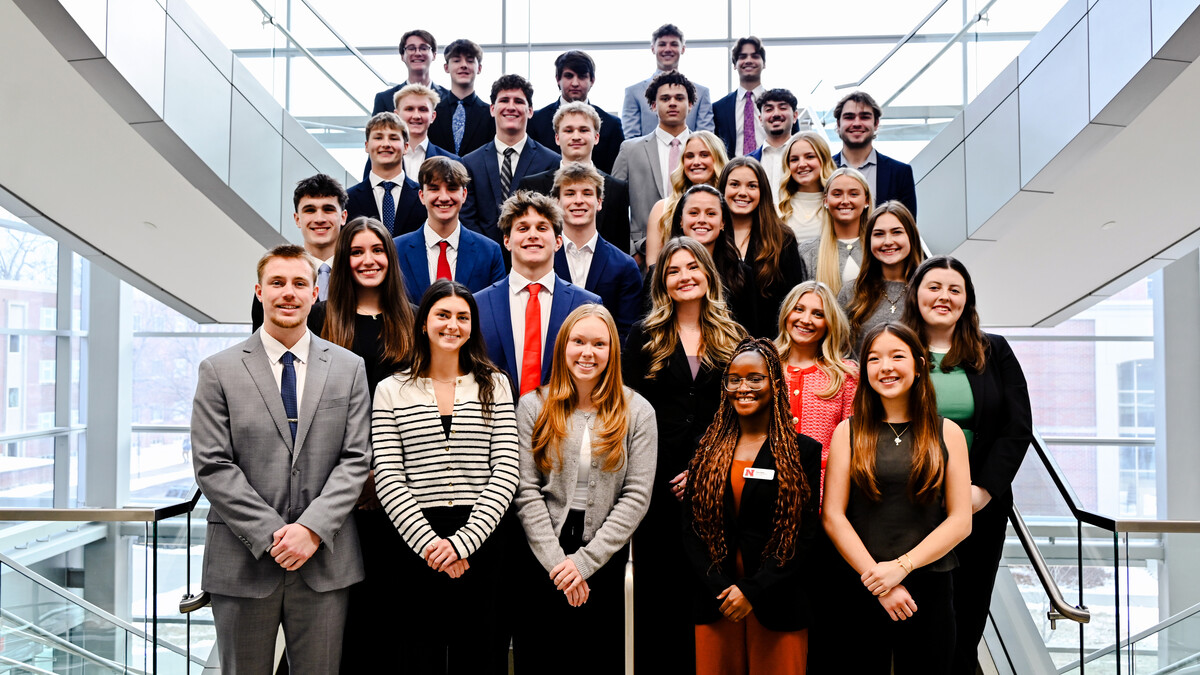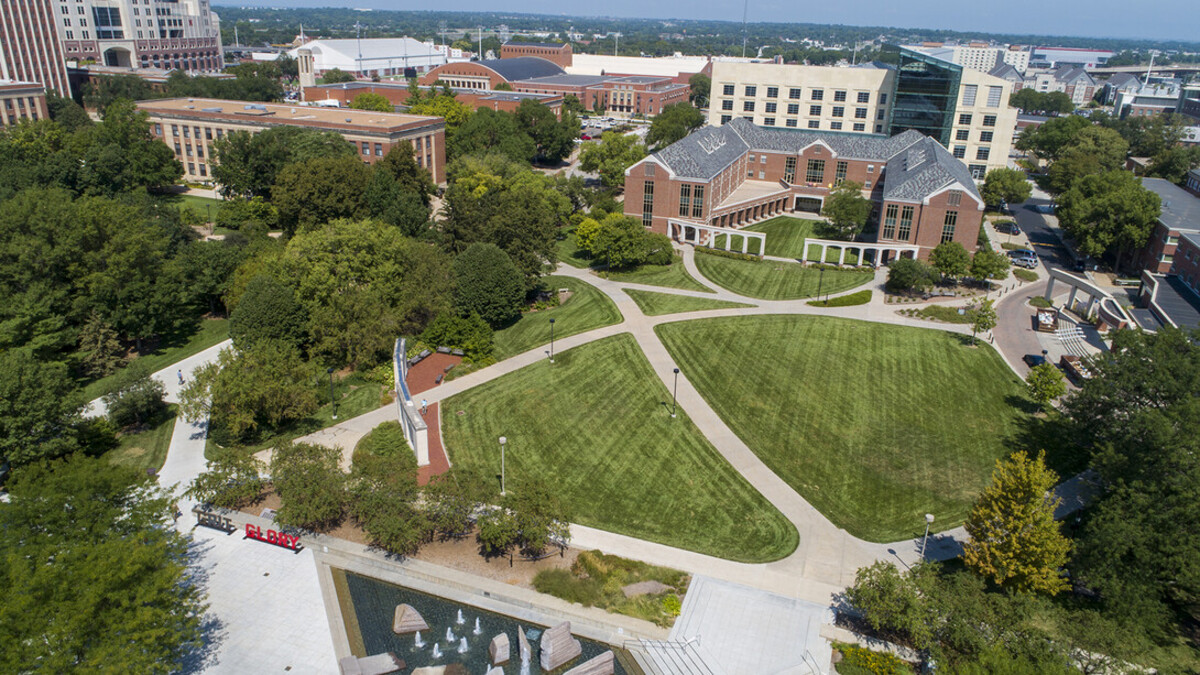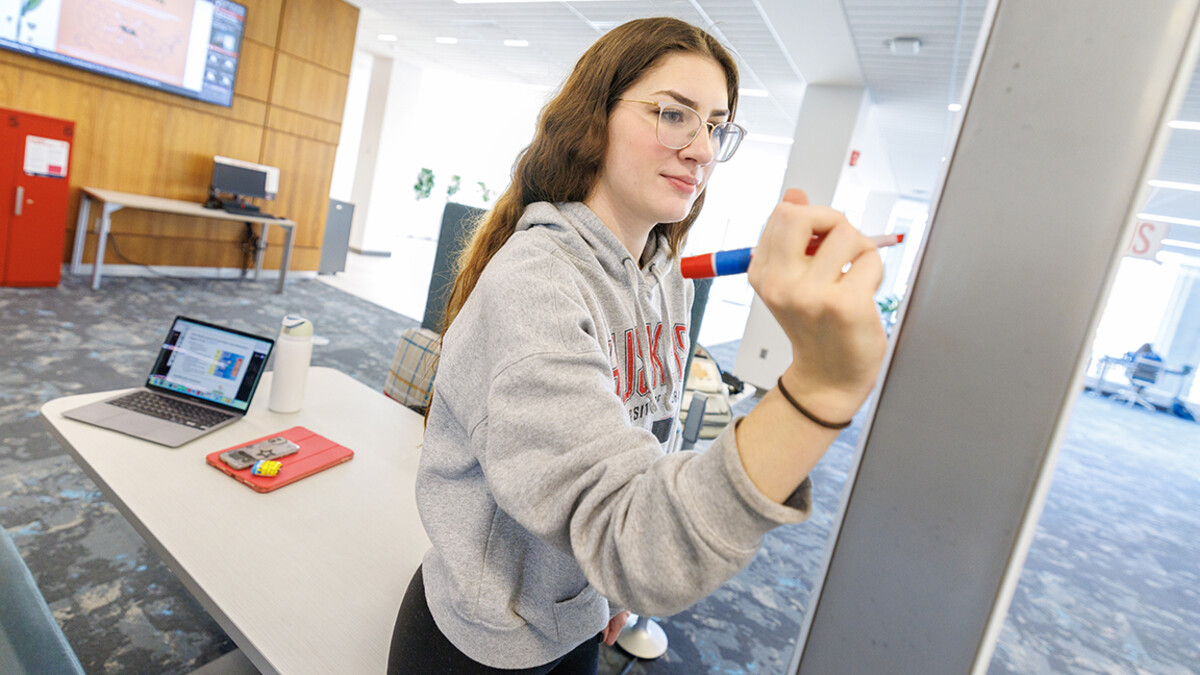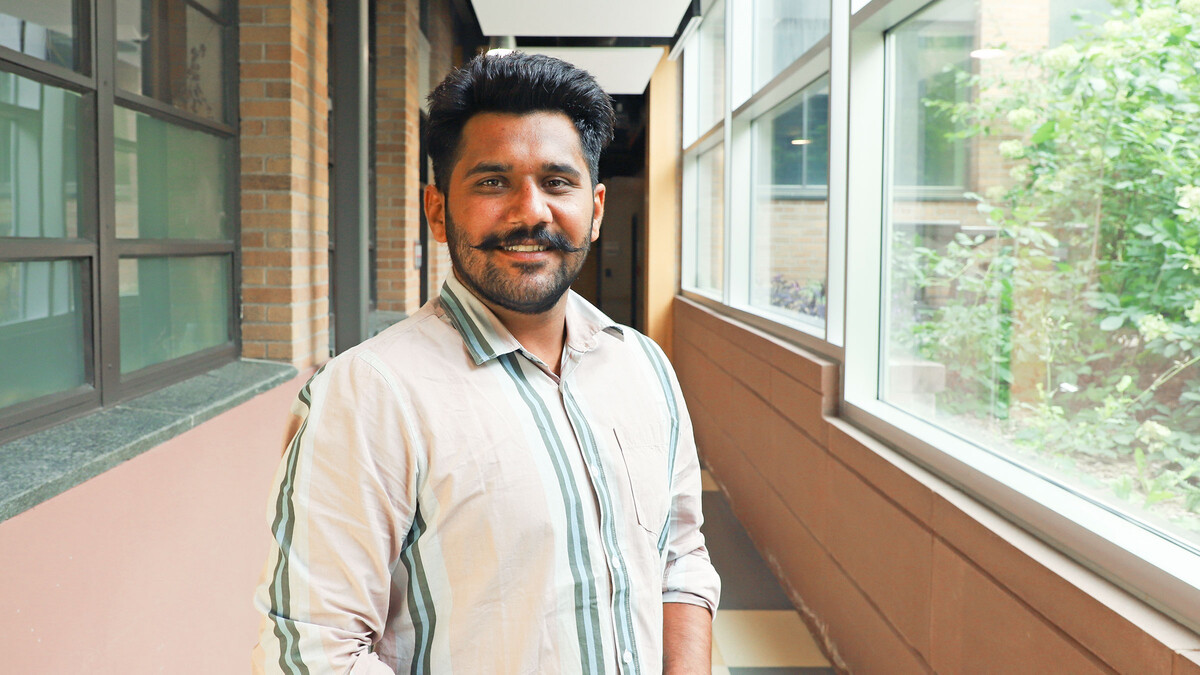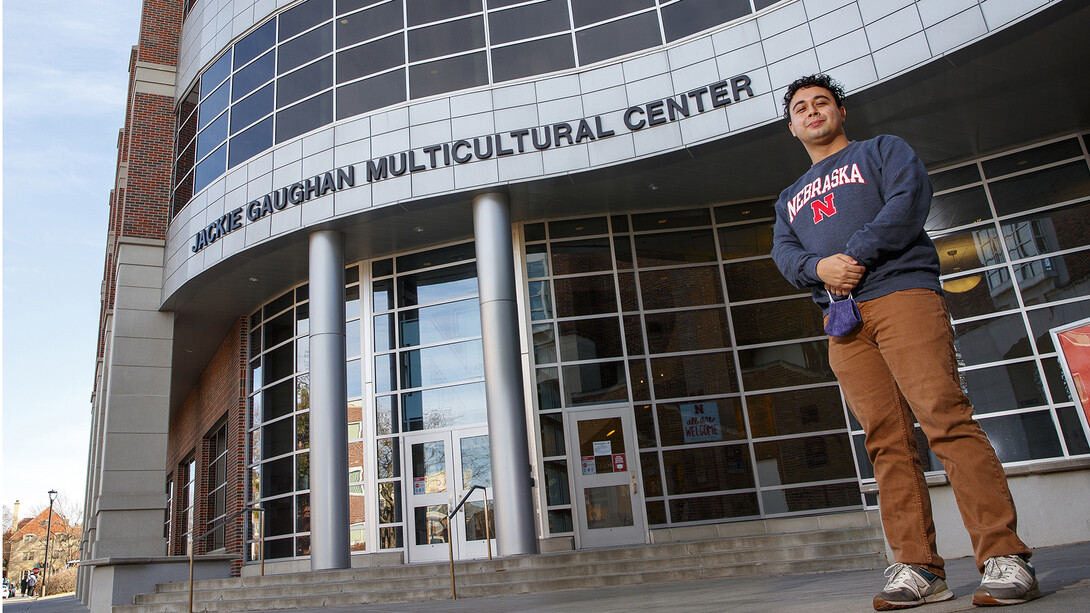
Fernando Wisniewski-Pena found himself at the University of Nebraska–Lincoln.
A political science and global studies double major, the December graduate started college on a pre-med track. However, he quickly realized his true passion was not necessarily medicine. He wanted to help others in a different way.
“I believe that everyone in college wants to help people in some way,” Wisniewski-Pena said. “I originally wanted to do pre-med and become a doctor, but I was more pleased with the idea of becoming a doctor rather than going through the process of becoming a doctor.”
While taking an Introduction to Health Professions class his freshman year, an epiphany struck during a guest speaker’s presentation. The professor had invited a University of Nebraska Medical School admissions chair to speak to the class, and the message resonated with Wisniewski-Pena.
“He told everyone that a lot of individuals who come to interview all basically have the same answer for why they want to become a doctor, and they always say ‘I want to help people,’” Wisniewski-Pena said. “He told me that there are so many other careers that help people, too — you don’t necessarily have to become a doctor. That helped me have that moment of ‘wow, I don’t want to become a doctor, I just want to help people.’”
The realization of having spent an entire freshman year on the wrong track left Wisniewski-Pena feeling a little lost and uncertain about next steps.
“I did feel out of place,” Wisniewski-Pena said. “And coming from Omaha South, which is about 78% Hispanic to a school that was predominately white, I was very out of my comfort zone.
“I feel like it was the very cliché ‘person of color in a white school’ situation where I basically didn’t have anyone to talk to.”
Then, one day he decided to just walk in and check out the Office of Academic Success and Intercultural Services.
“The staff was amazing at getting me back on track after not doing so well my freshman year, and they showed me the resources that we had,” Wisniewski-Pena said. “As a first-generation college student, you really don’t know when to ask for help. I don’t think people understand the scope of what it means to be first-generation. It’s crazy hard and OASIS was there for me.
“They were my home away from home, that support system I think a lot of first-generation college students could find comfort in.”
The Office of Academic Success and Intercultural Services, widely known as OASIS, is designed to enhance student success by promoting academic excellence, diversity awareness and social engagement. They act as a resource for any student who may feel isolated because of traits, beliefs or backgrounds — a safe space for everyone, which is exactly what it became for Wisniewski-Pena.
OASIS staff connected Wisniewski-Pena with the resources he sought. And, he ended up switching his major, joining new clubs and making friends from all different backgrounds. He even was able to study abroad.
“OASIS was where I found my people,” he said.
Now, as he prepares for graduation on Dec. 19, Wisniewski-Pena’s advice for fellow Huskers is to not be afraid to ask for help when needed — especially in that first, stressful year on campus.
“I was very timid in the sense of asking for help,” Wisniewski-Pena said. “I think that there’s no way you can go through college without asking for some form of help. Help in regards of many things — within academics, within finance, within mental health — would’ve saved me a lot of stress my freshman year.”
He also believes students should take advantage of every opportunity on campus, especially those outside of comfort zones.
“My advice for other college students who are either going into their freshman year or even finishing out their senior year is to have fun,” Wisniewski-Pena said. “You don’t want to graduate and look back on your four years wishing you would’ve done something.”
Looking ahead, Wisniewski-Pena has accepted a full-time position at PRC, a research company. He also plans to apply for law school in 2022 after spending some time traveling when the COVID-19 pandemic allows.
